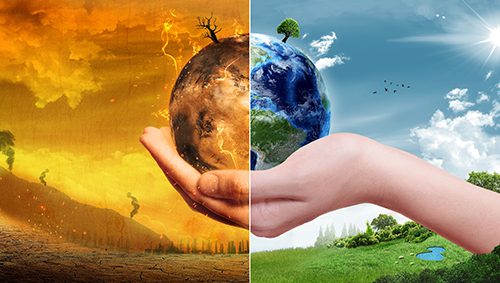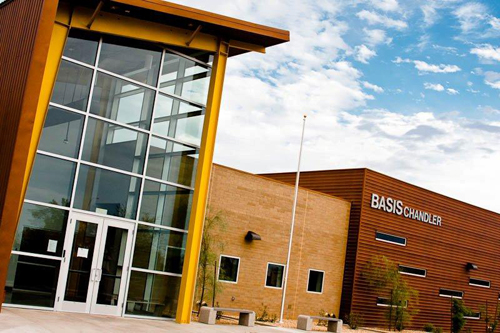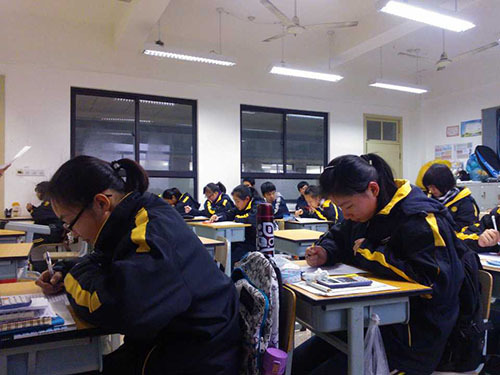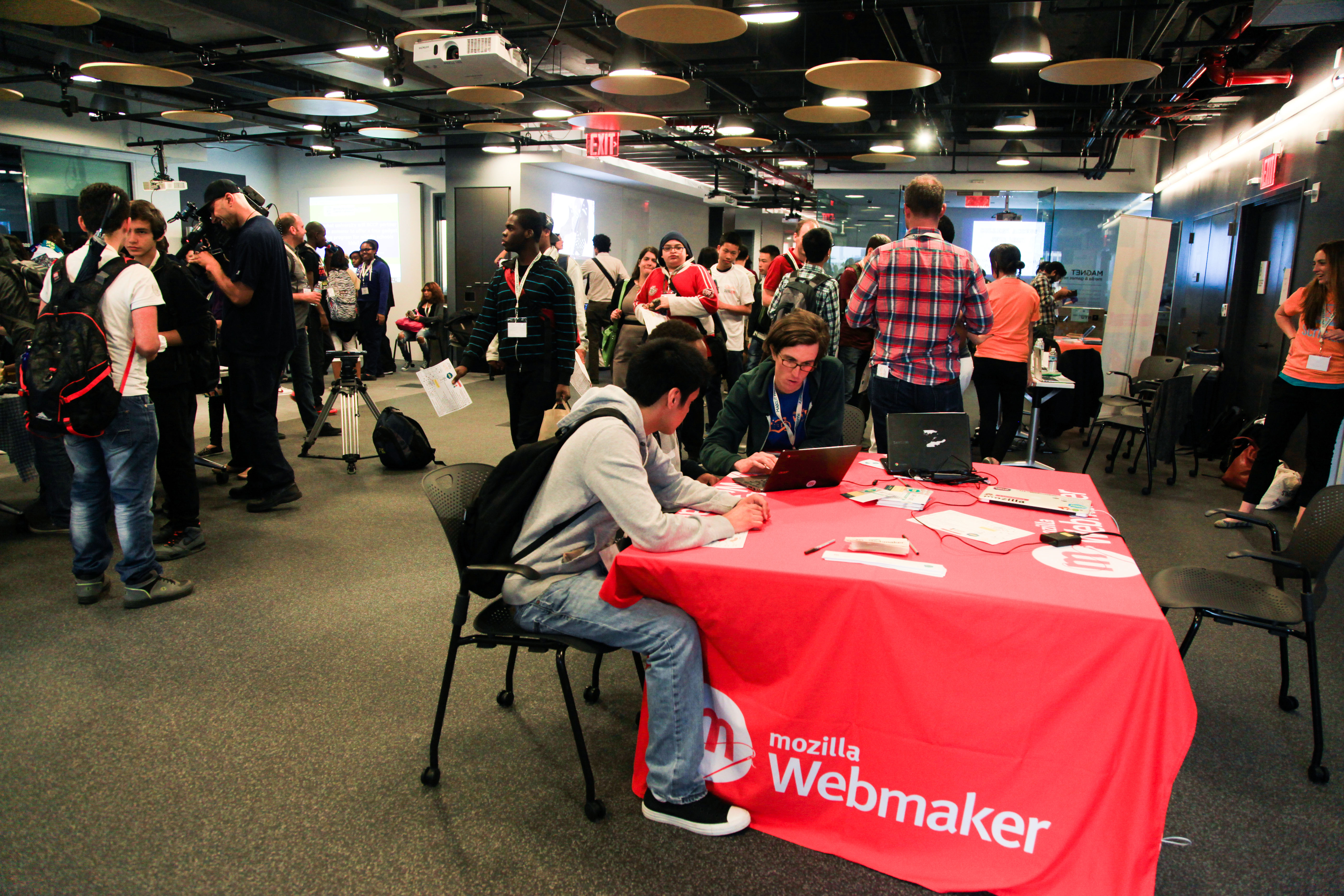The 2030 Agenda for Sustainable Development calls on countries to begin efforts to achieve the 17 SDGs over the next 15 years. The goals address the needs of people in both developed and developing countries, emphasizing that no one should be left behind. Protecting the Planet is one of the major focuses of these goals.
According to the OECD’s research, the growth and prosperity the world has experienced in past decades has “been accompanied by environmental pollution and natural resource depletion.” The number of natural disasters has significantly increased. OECD research estimates that by 2050, carbon dioxide emissions from fuel combustion will have increased by more than 50%. Biodiversity is decreasing due to deforestation. These significant environmental changes will impact our entire world unless we all start to collectively think green.
Our Millennial Bloggers are based all over the world. They are innovators in entrepreneurship, journalism, education, entertainment, and academic scholarship. This month we asked them to share their perspectives on the environment and climate change: Do they believe we can turn words into action?
“This is a huge problem, and yes, education won’t solve all of it,” writes Kamna Kathuria. “To translate words into action, we need to reshape fundamental mindsets. I’ll even advocate speaking with money, for once, by investing in the right research and technology. Individuals need to move towards closing the 30,000 pound gap. Teachers need to educate themselves, and then their students. Larger countries need to lead by example, smaller countries need to be the bigger person and set their own…” Read: Rising Temperature & Cold Actions.
“While energy issues are usually extremely partisan,” writes Francisco Hernandez, “Millennials are far more interested in the effects of energy use on the environment. They are more inclined—both on the left and the right—to believe in climate science and to support renewable energy. If I had to guess, I wouldn’t say that this is because Millennials are better people than their parents; this trend is most likely attributable to the brute fact that Millennials will be forced live in the world that we are shaping now—a world hurtling towards environmental ruin.” Read: Can Millennials (Literally) Save the World?
“Climate change isn’t something that “will” come upon us: it is now,” writes Harmony Siganporia, and “if our governments hesitate to act, because politics has come to resemble the theatre of the absurd (an arena where grandstanding takes precedence over the will to engage in concerted collective action), then being thought of by future generations as the befuddled or ‘deranged’ ones who did not know how to engage with the fact of climate change will be the least of our worries…” Read: Living (?) in the time of the ‘Great Derangement’
“Winters in Finland were getting warmer every year but other than that, I felt like the global warming didn’t really affect me,” writes Reetta Heiskanen. At 16, Reetta moved to Australia and learned first-hand about the Canberra bushfires. In addition to many deaths and injuries, over “70 % of the Australian Capital Territory’s forests and nature parks were severely damaged.” She notes “in a normal dinner table discussion, it is hard to point out what have we accomplished so far and what needs to be done next.” Read: What Have We Accomplished Since Al Gore’s Warning?
“Cape Town is in the midst of one of its worst droughts ever,” writes Dominique Dryding, and the problem is not just there, “with Kenya and Somalia, experiencing droughts of their own.” Dominique notes that “precautions should be taken” and “water monitoring should become the norm.” She adds that one of the most promising solutions to the problem “was tested in Los Angeles. 96 million plastic balls were released onto the Los Angeles Reservoir to reduce water evaporation.” Read: Where has all the Water Gone?
“Climate change is not only a discussion of politics and economics, it is a discussion of ethics,” writes Wilson Carter III. “We need to decide what kind of world we want to leave for our children. Call Congress, demand a revenue neutral carbon tax, do it for your home, your children and yourselves.” Wilson reminds us of Edmund Burke’s words: “All that is necessary for the triumph of evil is that good men [and women] do nothing.” Read: Do You Believe We Can Turn Words into Action?
Founder of Lensational, Bonnie Chiu, shares photographs from 5 programs in Thailand, India, Kenya, Bangladesh, and Ghana which she says share a common theme: “women and girls from poorer backgrounds bear the disproportionate burden of climate change. They have to walk longer to fetch water, therefore spending more time on care responsibilities, and missing out on education and economic opportunities. The walk to the well is often a perilous journey with risks of being raped.” Read: Championing Female Eco-Warriors and Imagery to Fight Climate Change.
“My country has recently suffered the harsh effects of climate change when flooding hit Freetown,” writes Alusine Barrie. In terms of actions needed, he adds, “we must actively mobilize schools, communities, NGOs, Governments, etc. to strive for constant awareness and action. While the actions proposed here may already be popular in other countries, in developing countries like mine, climate change is yet to be seen as a major concern needing proactive action.” Read: Action for climate change begins here!
The Millennial Bloggers hail from all over the world. Each writer is also a world traveler and, collectively, they have worked on every continent. The millennials claim their roots in diverse locations: the United States, Hong Kong, South Africa, India, Sierra Leone, New Zealand, Afghanistan, and Finland.
The Millennial Bloggers are Alusine Barrie, Sajia Darwish, Kamna Kathuria, Jacob Deleon Navarrete, Reetta Heiskanen, Shay Wright, Isadora Baum, Wilson Carter III, Francisco Hernandez, Erin Farley, Dominique Alyssa Dryding, Harry Glass, Harmony Siganporia and Bonnie Chiu. These remarkable young people have produced shows and founded companies. They have been featured on Forbes ‘Asia 30 Under 30’ list and honored by Asian Women of Achievement Awards. They have been awarded numerous scholarships and fellowships. They hold Bachelors, Masters, and Doctoral degrees. They run schools and train educators in underprivileged communities. They have taught all over the globe in environments ranging from maximum security prisons to elementary schools.
(Photos are courtesy of CMRubinWorld)
Join me and globally renowned thought leaders including Sir Michael Barber (UK), Dr. Michael Block (U.S.), Dr. Leon Botstein (U.S.), Professor Clay Christensen (U.S.), Dr. Linda Darling-Hammond (U.S.), Dr. MadhavChavan (India), Professor Michael Fullan (Canada), Professor Howard Gardner (U.S.), Professor Andy Hargreaves (U.S.), Professor Yvonne Hellman (The Netherlands), Professor Kristin Helstad (Norway), Jean Hendrickson (U.S.), Professor Rose Hipkins (New Zealand), Professor Cornelia Hoogland (Canada), Honourable Jeff Johnson (Canada), Mme. Chantal Kaufmann (Belgium), Dr. EijaKauppinen (Finland), State Secretary TapioKosunen (Finland), Professor Dominique Lafontaine (Belgium), Professor Hugh Lauder (UK), Lord Ken Macdonald (UK), Professor Geoff Masters (Australia), Professor Barry McGaw (Australia), Shiv Nadar (India), Professor R. Natarajan (India), Dr. Pak Tee Ng (Singapore), Dr. Denise Pope (US), Sridhar Rajagopalan (India), Dr. Diane Ravitch (U.S.), Richard Wilson Riley (U.S.), Sir Ken Robinson (UK), Professor Pasi Sahlberg (Finland), Professor Manabu Sato (Japan), Andreas Schleicher (PISA, OECD), Dr. Anthony Seldon (UK), Dr. David Shaffer (U.S.), Dr. Kirsten Sivesind (Norway), Chancellor Stephen Spahn (U.S.), Yves Theze (LyceeFrancais U.S.), Professor Charles Ungerleider (Canada), Professor Tony Wagner (U.S.), Sir David Watson (UK), Professor Dylan Wiliam (UK), Dr. Mark Wormald (UK), Professor Theo Wubbels (The Netherlands), Professor Michael Young (UK), and Professor Minxuan Zhang (China) as they explore the big picture education questions that all nations face today.
The Global Search for Education Community Page
C. M. Rubin is the author of two widely read online series for which she received a 2011 Upton Sinclair award, “The Global Search for Education” and “How Will We Read?” She is also the author of three bestselling books, including The Real Alice in Wonderland, is the publisher of CMRubinWorld and is a Disruptor Foundation Fellow.
Follow C. M. Rubin on Twitter: www.twitter.com/@cmrubinworld






Recent Comments